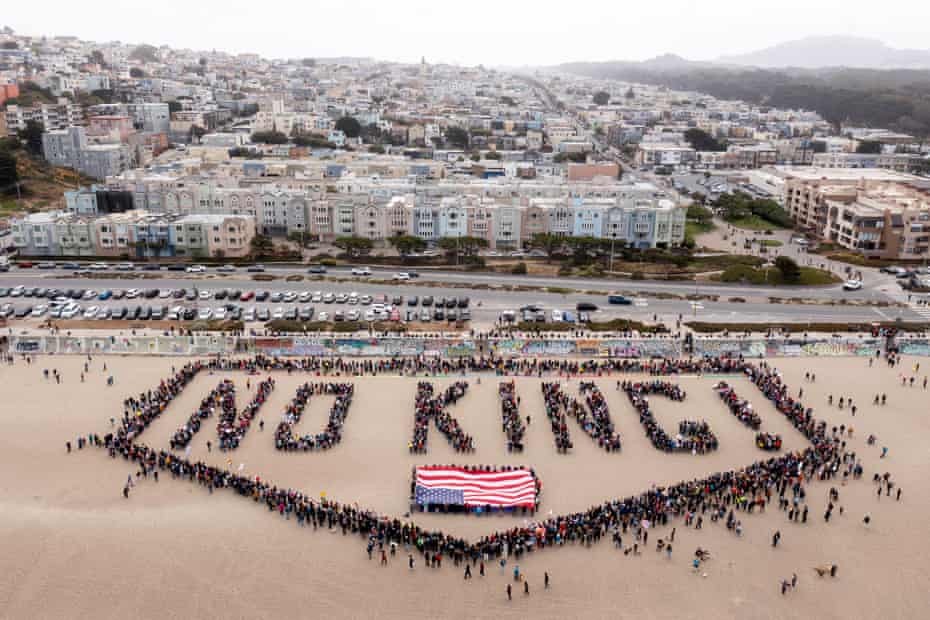Across all 50 states, Americans are preparing to take to the streets on Saturday in what organizers are calling the second major “No Kings” protest, a nationwide demonstration against what they see as the Trump administration’s slide toward authoritarianism. Millions are expected to participate in rallies in more than 2,700 locations, ranging from small towns to major cities.
The movement, which first mobilized in June, frames its message simply: there are no kings in the United States. Protest organizers say the goal is to stand against policies and actions by former President Donald Trump that they view as attempts to centralize power, undermine democratic institutions, and silence dissent.
In recent months, Trump has sought to expand federal authority in American cities by sending in federal troops and increasing immigration enforcement. His critics argue that these measures criminalize dissent, targeting left-leaning organizations that the administration alleges support political violence or terrorism. Local governments and city officials have largely resisted, filing lawsuits to block federal intervention, while communities have organized peaceful demonstrations against what they describe as the militarization of their neighborhoods.
Supporters of the “No Kings” protests insist the rallies are nonviolent. Organizers report that tens of thousands of participants have undergone safety and de-escalation training ahead of Saturday’s events. “What’s most important as a message for people to carry is that the president wants us to be scared, but we will not be bullied into fear and silence,” said Lisa Gilbert, co-president of Public Citizen, one of the main organizing groups. “It’s incredibly important for people to remain peaceful, to stand proud, and to say what they care about without being cowed by that fear.”
While Trump’s allies have sought to portray the protests as anti-American and influenced by antifa, a decentralized anti-fascist movement, organizers emphasize that the events are about democratic principles, not partisan politics. Some Republican figures, like Texas Governor Greg Abbott, have announced plans to deploy the state’s National Guard to Austin ahead of rallies in the capital, citing security concerns.
Several high-profile politicians are expected to attend or show support for the protests, including Democratic senators Chuck Schumer and Chris Murphy, and independent Senator Bernie Sanders. More than 200 organizations have signed on as partners for the events, highlighting the broad coalition of civic groups, labor unions, and advocacy organizations involved.
Organizers have identified a number of anchor cities where larger demonstrations are planned, including Washington, D.C., San Francisco, San Diego, Atlanta, New York City, Houston, Honolulu, Boston, Kansas City in Missouri, Bozeman in Montana, Chicago, and New Orleans.
The messaging for Saturday’s events underscores several concerns. Protest leaders point to what they describe as misuse of taxpayer funds for political power grabs, Trump’s statements about seeking a third term and acting like a monarch, and administrative overreach that includes defying courts, slashing public services, and deporting people without due process.
The June iteration of the “No Kings” protests drew millions of Americans into the streets. The Harvard Crowd Counting Consortium estimated that between 2 and 4.8 million people participated across more than 2,000 locations, making it one of the largest single-day demonstrations in the country since Trump took office in January 2017, second only to the Women’s March earlier that year.
Saturday’s protests aim to build on that momentum, sending a clear message that Americans remain committed to democratic principles and the idea that no individual is above the law. As communities across the country prepare for what organizers anticipate will be historic turnouts, the overarching sentiment is one of vigilance, solidarity, and peaceful resistance.

